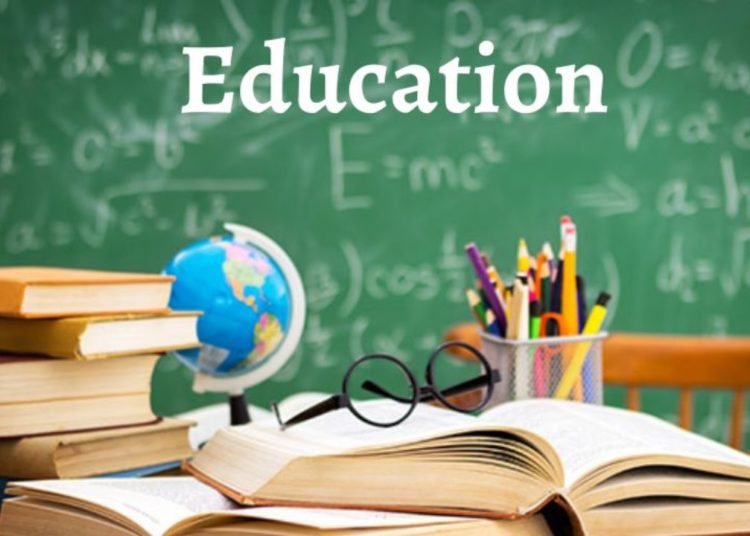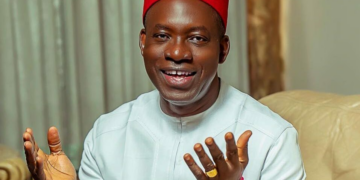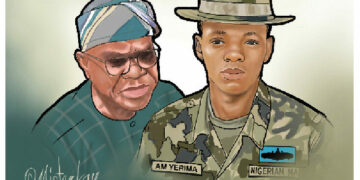Successive administrations have always promised to increase budgetary allocation to education all to no avail. Education is said to be the bedrock of any society.
The United Nations Educational, Scientific and Cultural Organisation (UNESCO) benchmark of 15 to 20 percent cent of the annual budget for education is yet to be attained.
It is gratifying to note that President Muhammadu Buhari has promised a 50 percent increase in budgetary allocation for the education sector in the next two years.
However, on Thursday at the Presidential Villa, during the official launch of the Reports of Independent Evaluation of Sustainable Development Goals-3 (SDG-4) and SDG-4 the UN resident and humanitarian coordinator in Nigeria, Mathias Schmale, advised Nigeria to increase its present seven percent budget for education to 20 percent with clear accountabilities on delivery.
The world body said unless Nigeria acts fast on the issue, the country might not achieve the global agenda for universal inclusive and equitable basic education for all school-age children by 2030.
The UN resident and humanitarian coordinator in Nigeria, Mathias Schmale, observed that Nigeria is the first country to undertake and deliver independent comprehensive evaluations of SDG-3 and SDG-4.
He said the reports indicate how quickly the government has established robust institutional monitoring and support frameworks at the national and sub-national levels to support effective implementation of the SDGs across the whole country.
Schmale said, “While the findings of these evaluations show some improving health and education outcomes in Nigeria, the reports also contain some worrying analysis.
Concerning SDG-4 on quality education, it is, for example, concerning to note that Nigeria is unlikely to achieve the global agenda for universal inclusive and equitable basic education for all school-age children by 2030 if the current very low public investment in the education sector remains the same.
“The evaluation indicates that the right policies (especially around free basic education and gender) are in place but an increase in quality and access to education is critical.
“In the 2022 budget, there was an increase to 7% on education but the evaluation says it will need to increase to 20% with clear accountabilities on delivery.
“Similarly, government resources for health financing are inadequate for the achievement of SDG-3 targets related to good health and well-being.
While lauding the senior special assistant to the president on SDGs, Princess Orelope-Adefulire, the UN official said the effective implementation of the SDGs requires periodic evaluation to ensure progress measurement, generate knowledge and inform policy shift.
Schmale said the two reports point to the importance of significantly increasing public spending on both health and education services.
At the event, Vice President Yemi Osinbajo stressed the need for building the commitment and incentive necessary to prioritise and increase basic educational financing to 12 percent at all levels.
He said, “The timing of the use of appropriated funds is also important. The state government should take advantage of the UBEC matching grants by making the required contributions.
“Educational stakeholders are encouraged to develop and strengthen coordination mechanisms that can help tighten the collaboration with information sharing between federal and the state on the one hand, and non-state actors on the other hand.”
The vice president noted that with the adoption of the agenda and the SDGs, Nigeria has set for itself a vision to end extreme poverty and safeguard our planet by the year 2030.
According to him, achieving inclusive sustainable development is an objective that aligns closely with the present administration’s desire to bring 100 million people out of poverty in 10 years.
He explained that it is for this reason that the federal government established several programs to support the acceleration of the achievement of the SDGs.
On the findings of the report, Osinbajo stated, “The findings contained in these strategic evaluations reinforce the evidence for improving health and educational outcomes in Nigeria, and highlight how all stakeholders, governments, development partners and civil society can best address systemic gaps and challenges.
“The findings of this strategic evaluation support further evidence for improving the rights of children to education in Nigeria and how the Government at all levels, along with development partners and civil society, can best address systemic gaps and challenges, including the negative effects of the ongoing COVID-19 pandemic, to progress on our shared commitment to the 2030 Agenda for sustainable development,” she further said.
In her message at the occasion, the UN Deputy Secretary-General, Amina Mohammed, commended Orelope-Adefulire and the UN team in the country “for organising this important and timely event.”
She said, “As evidenced by the reports, Nigeria recognizes that health and education are cornerstones for sustainable and equitable development. progress in these areas is crucial to their resilience to global shocks. And whether the multiple crises the world is confronting, strengthening the Nigerian healthcare system is the key to being better prepared for current and future pandemics.
“And the report sheds some light on key priority areas to do so. including improving the governance and accountability of health care programs across the country. The report is also very timely as the recommendations on education aligned with the focus areas of the transforming education summit, including inclusive and equitable education, especially for our girls, Safe and Healthy Schools, foundational skills, lifelong learning, digital skills, and education Financing.
“I encourage you all to swiftly turn these recommendations into actionable levels so that we can accelerate our implementation of the 2030 agenda. I congratulate Nigeria on the progress identified in the report. Let these results serve as a catalyst for even greater achievements.’





